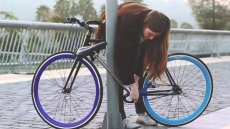If you hate your job because it requires complex work with other people or data, you may now discard the negative thoughts as researchers have found that complex jobs help people retain their memory and thinking skills even after retirement.
The study found that people who held jobs with higher levels of complexity with data and people, such as management and teaching, had better scores on memory and thinking tests.
"These results suggest that more stimulating work environments may help people retain their thinking skills, and that this might be observed years after they have retired," said study author Alan Gow from Heriot-Watt University in Edinburgh, Scotland.
"Our findings have helped to identify the kinds of job demands that preserve memory and thinking later on," Gow added.
For the study, the researchers tested memory and thinking abilities of 1,066 Scottish people with an average age of 70.
The tests looked at memory, processing speed and general thinking ability.
Researchers also gathered information about the jobs participants held. The job titles were assigned scores for the complexity of work with people, data and things.
For example, complex jobs might involve coordinating or synthesizing data, while less complex jobs might involve copying or comparing data.
In terms of working with others, more complex roles might involve instructing, negotiating or mentoring, while less complex jobs might involve taking instructions or helping.
The analysis used levels of complexity according to the Dictionary of Occupational Titles.
Examples of jobs that score highly for the complexity of work with people are: lawyer, social worker, surgeon.
Examples of jobs that score highly for the complexity of work with data are: architect, civil engineer, graphic designer or musician.
The study appeared in the journal Neurology.





